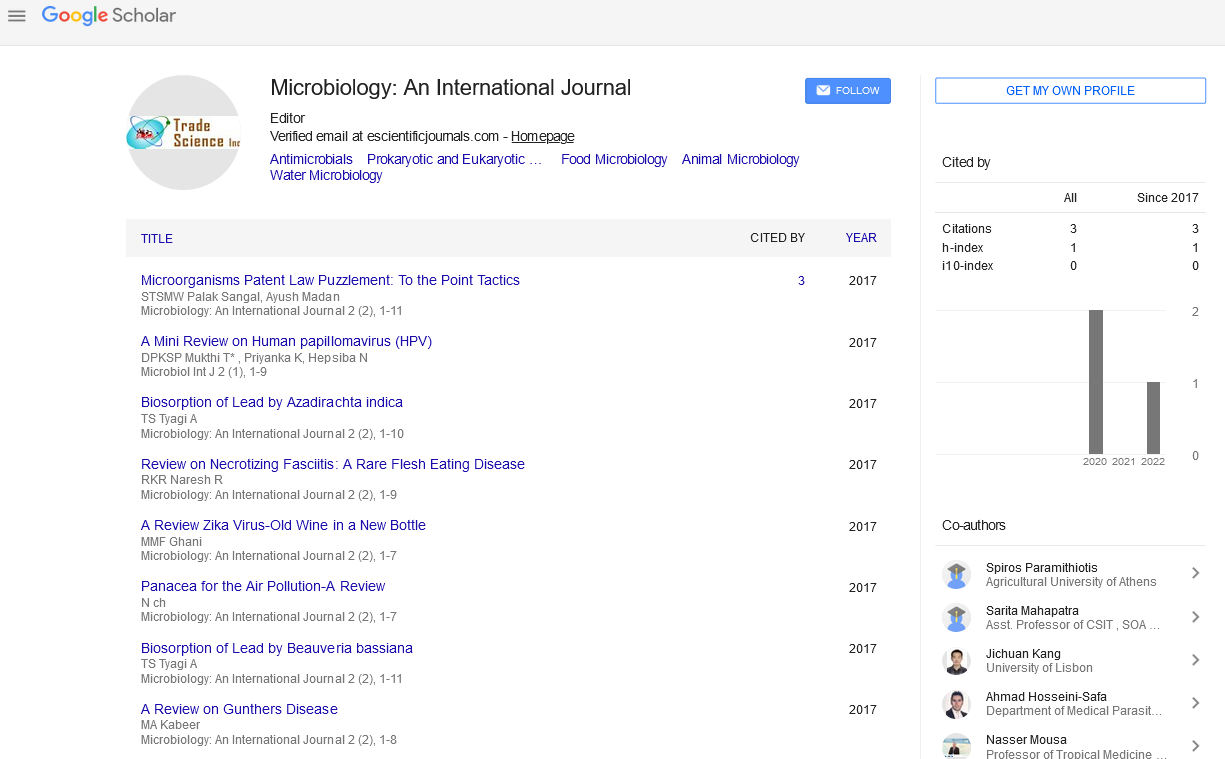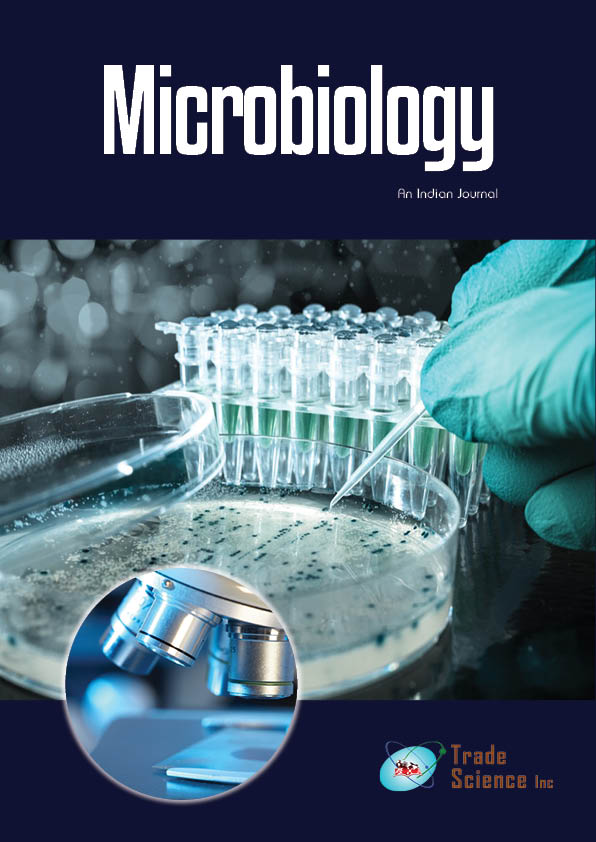Short commentary
, Volume: 3( 2)Modulation of Inflammatory Responses by Gastrointestinal Prevotella spp.
- *Correspondence:
- Rizzello M, MiHAR Lab, EE1701, University of Nantes, Nantes, France; E-mail: rizzellomir@uon.fr
Received: September 29, 2021; Accepted: October 20, 2021; Published: October 29, 2021
Citation: Rizzello M. Modulation of Inflammatory Responses by Gastrointestinal Prevotella spp. Microbiol Int J. 3(2):125.
Abstract
Various microbial profiles in the intestinal microbiota have been linked to inflammatory bowel and systemic disorders, however it's often unclear whether these potential bacteria actively control host phenotypes or passively expand within the changed microbial environment. In this study, we show that colonisation of mice with a member of the Prevotella genus, which has previously been linked to colitis in mice, worsens intestinal inflammation. Prevotella intestinalis affects the ecosystem's composition and function, resulting in a decrease in short-chain fatty acids, notably acetate, and, as a result, a decrease in intestinal IL-18 levels during steady state. Intestinal inflammation was reduced in Prevotella-colonized animals by supplementing them with IL-18. As a result, we infer that intestinal Prevotella colonisation causes metabolic alterations in the microbiota, which limit IL-18 production and worsen intestinal inflammation, as well as the possibility of systemic autoimmune.
Keywords
Prevotella spp.; Pathobiont; Intestinal inflammation.
Introduction
Microbial communities that colonise the human body are known to benefit the host's health by performing important metabolic tasks and regulating immunological responses. In recent years, however, an increasing number of diseases have been linked to changes in the makeup and function of these communities. Yet, in many cases, it's unclear if the aforementioned alterations are the disease's cause, a result, or only a bystander [1]. The inability to define a distinct "healthy" microbiome, as microbiota composition varies widely amongst healthy individuals, is one of the key challenges in resolving this topic. The idea of enterotypes was created to simplify this variance by classifying individuals based on the presence of different or overabundant key species, specifically of three bacterial genera, Bacteroides, Prevotella, or Ruminococcus [2]. A concern arose right away: Could a higher frequency of inflammatory disorders be linked to one of the enterotypes, specifically those with Bacteroides- or Prevotella-rich microbiomes? Multiple research have expanded information about the relationships and activities of Prevotella spp. in infections and inflammatory diseases, although the subject remains unanswered due to the emergence of both beneficial and harmful features in these groups of bacteria diseases in the last years [3]. Nonetheless, current research has made tremendous progress in our understanding of Prevotella. In this Review, we summarise and evaluate recent results that have gone into great detail to investigate the genetic diversity and ecology of the Prevotella genus. We also look at the experimental tools and models that are essential for furthering Prevotella research. The goal of this review is to provide a critical analysis of the major inflammatory diseases Prevotella has been implicated in, such as periodontitis, rheumatoid arthritis, and intestinal dysbiosis and inflammation in HIV patients, due to numerous associations made between Prevotella and health disorders [4].
Conclusion
In order to fully understand the role of Prevotella spp. in inflammatory illnesses including rheumatoid arthritis and intestinal dysbiosis and inflammation, the essential experimental methods must be constantly improved. This comprises a vast collection of publicly available Prevotella isolates as well as a thorough description of the genetic diversity of species and strains. The use of animal models in which the microbiota composition may be easily changed, such as gnotobiotic or human microbiota-associated (HMA) mice models, is still required for comprehensive mechanistic research. Performing functional genetic investigations in Prevotella spp., like many other anaerobic bacteria, has proven problematic and is a potential challenge.
References
- Accetto T, Avgu?tin, G. The diverse and extensive plant polysaccharide degradative apparatuses of the rumen and hindgut Prevotella species: a factor in their ubiquity? Syst. Appl. Microbiol. 2019;42:107-116.
- Albertsen M, Hugenholtz P, Skarshewski A, et al. Nielsen Genome sequences of rare, uncultured bacteria obtained by differential coverage binning of multiple metagenomes Nat. Biotechnol. 2013;31:533-538.
- De Filippis F, Pasolli E, Tett A, et al. Distinct genetic and functional traits of human intestinal Prevotella copri strains are associated with different habitual diets. Cell Host Microbe, 2019;25:444-453.
- Hugenholtz F, de Vos WM. Mouse models for human intestinal microbiota research: a critical evaluation Cell. Mol. Life Sci. 2018;75:149-160.

